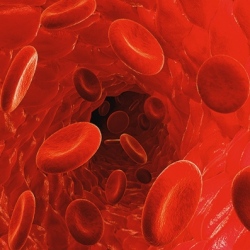
A blood test could help people choose a stop-smoking strategy that would give them the best chance of quitting, research in a Lancet journal suggests. Studies show as many as 60% of people who try to give up start smoking again in the first week. But researchers argue measuring how quickly a person breaks down nicotine could boost the chances of success.
Other experts say the cost-effectiveness of these extra tests would need to be assessed. Nicotine is one of the most addictive substances in cigarettes – smokers crave more nicotine when their body’s levels drop, prompting them to smoke again. But different people break down nicotine at different rates.
Some scientists suggest people who break it down more quickly may crave more cigarettes and in turn find it harder to quit. In this study, researchers from the University of Pennsylvania in the US enlisted some 1,240 people on different smoking cessation programmes.
They checked each volunteer’s blood to see if nicotine was broken down at a normal or slow rate. Volunteers received either a nicotine patch, a drug called varenicline or treatment with a dummy pill.
Varenicline is a non-nicotine based drug that is available on prescription . Doctors balance potential side-effects – including the risk of depression and suicide – against the harms of continued smoking.
